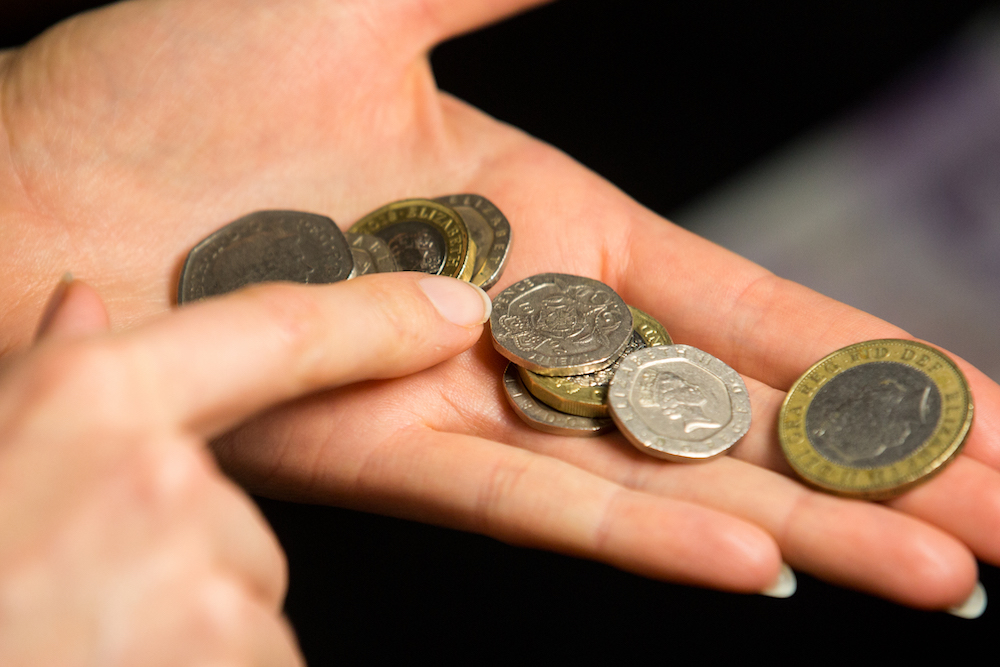What currency would an independent Scotland use?
An informal adoption of sterling is likely to be Scotland’s only route to keeping the pound

A free daily email with the biggest news stories of the day – and the best features from TheWeek.com
You are now subscribed
Your newsletter sign-up was successful
As Nicola Sturgeon presses for a second Scottish independence referendum, key questions being asked include what type of currency the nation would use after quitting the union.
Yesterday, Boris Johnson wrote to the first minister to reject her request for an IndyRef2. But as Downing Street now faces chaos following the prime minister’s resignation, the Scottish National Party (SNP) is set to double down on its vote bid.
And the two governments have also clashed horns over the currency that Scotland would use if Sturgeon does succeed in her independence bid.
The Week
Escape your echo chamber. Get the facts behind the news, plus analysis from multiple perspectives.

Sign up for The Week's Free Newsletters
From our morning news briefing to a weekly Good News Newsletter, get the best of The Week delivered directly to your inbox.
From our morning news briefing to a weekly Good News Newsletter, get the best of The Week delivered directly to your inbox.
Money talk
Prior to the 2014 independence vote, the UK Conservative government ruled out creating a formal currency union if Scotland opted to go it alone.
But the Scottish government argued that keeping a currency union with the UK would be favourable for both parties. In a 2013 White Paper titled “Scotland’s Future”, leaders in Holyrood argued that “using Sterling will provide continuity and certainty for business and individuals, and an independent Scotland will make a substantial contribution to a Sterling Area”.
Assuming that after winning independence, the ruling Scottish National Party (SNP) followed through on its vow to rejoin the EU, another option would be to adopt the euro. But according to a 2021 paper by the Institute for Government (IfG) think tank, “joining the eurozone would, at best, be a medium-term option for an independent Scotland”, because the “formal procedures that prospective members must go through” include “showing for two years that they can maintain the value of their currency against the euro”.
So a newly independent Scotland would have to choose between “informally adopting sterling and launching a new, free-floating currency”, the IfG concluded.
A free daily email with the biggest news stories of the day – and the best features from TheWeek.com
‘Makes no sense’
An informal adoption of sterling is likely to be Scotland’s only route to keeping the pound and has the short-term advantages of keeping a credible currency and sustaining investment.
“Politically though, this makes absolutely no sense,” argued Robbie Mochrie in The National. The UK government would insist that “Scotland’s central bank would have to be subject to Bank of England oversight”, effectively stripped the country of its independence, according to Mochrie.
But a free-floating currency would also pose short-term issues, with uncertainty over the direction of an independent Scotland. The IfG paper said that the “absence of a track record of prudent fiscal and monetary policy” would create uncertainty and volatility, leading to high borrowing rates for Scotland and a potential lack of investment.
In the long-term though, a free-floating currency would give the Scottish government control over its monetary policy, and over time, the ability to “build up foreign currency reserves to manage its exchange rate” – a vital requirement to join the eurozone. Retaining low trading barriers with the UK would also be vital, the think tank said.
According to Mochrie, “it is possible to set up a central bank and a new currency in no more than five years”. And it would be “much better for Scotland to become a currency issuer, so that its government has all the tools of monetary policy available to it”.
“In a crisis, Scotland could then be like the UK after the financial crisis, and, when needed, stabilise the economy with much less unemployment,” he concluded.
Richard Windsor is a freelance writer for The Week Digital. He began his journalism career writing about politics and sport while studying at the University of Southampton. He then worked across various football publications before specialising in cycling for almost nine years, covering major races including the Tour de France and interviewing some of the sport’s top riders. He led Cycling Weekly’s digital platforms as editor for seven of those years, helping to transform the publication into the UK’s largest cycling website. He now works as a freelance writer, editor and consultant.